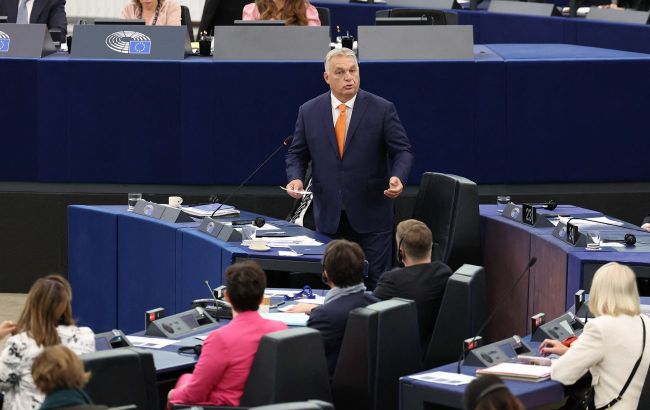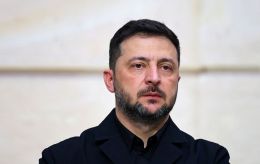EU risks missing deadline to extend sanctions against Russia over Orbán
 Photo: Orbán can block sanctions against Putin (Getty Images)
Photo: Orbán can block sanctions against Putin (Getty Images)
The European Union faced the reluctance of Hungary's Prime Minister Viktor Orbán to sign the extension of sanctions against Russia. Sanctions are meant to be renewed every six months, with the current term ending on January 31, reports Bloomberg.
On January 21, Orbán again criticized the EU sanctions regime, claiming that 15 rounds of sanctions have harmed the European economy. In December, Orbán stated that he wanted to wait for Donald Trump's inauguration before making a decision on the extension.
In the early days of his presidency, Trump showed no signs of intending to ease sanctions on Moscow. On the eve of his inauguration, he indicated that he would likely impose additional measures if Vladimir Putin does not engage in peace talks.
Sanction extension
EU ambassadors will meet several times in the coming days to determine whether they can advance the extension, which has typically been a matter of routine debate but now requires unanimous support from all 27 member states. Several diplomats have said that there is currently no Plan B for extending the sanctions if Orbán continues to block them.
If the EU diplomats are unable to reach an agreement on the extension this week, the matter will be referred to the foreign ministers, who are scheduled to meet in Brussels on January 27, sources familiar with the situation said. One source indicated that the bloc still hopes to resolve the extension issue this week.
Orbán has previously threatened other actions related to Ukraine but ultimately backed down.
"It’s time to throw sanctions out the window and to create a sanctions-free relationship with the Russians," Orbán said on January 18. "This is some way off, but we need to work on this," he added.
New package
Even though the extension is stalled, the EU continues to discuss a 16th round of sanctions, as previously reported by Bloomberg. Most of these plans will also require Budapest’s support.
European Commissioner for Economy Valdis Dombrovskis says that the EU should consider introducing additional sanctions aimed at reducing Russia's energy export revenues.
"The imports of Russian liquefied natural gas currently are actually increasing, so there are ways that we can still put more pressure on Russia," he said in Davos during a session focused on Russia's economy.
Another option
According to the Financial Times, the EU is considering options in case Hungary vetoes the extension of sanctions against Moscow.
Specifically, this involves 190 billion euros in the Euroclear depository in Belgium. If sanctions are not extended, this money "will end up in Russia the next day" as there will be no basis for holding it.
In this case, a royal decree from World War II (from 1944) may be used, allowing Belgian King Philippe to block the transfer of frozen Russian assets from the country.

